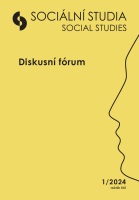
KONOPÁSEK, Z. (2024): Věda a politika, vpravo, vlevo. Sociální studia, 21 (1): 33-38. Dostupné na adrese: https://doi.org/10.5817/SOC2023-33647
::::Pavel Barša svůj text "Pragmatická sociologie emancipace: Latour vs. Boltanski" pointuje úvahami o tom, že Latourovi není blízká ani revoluční levice, ani krajní konzervatismus. Pomáhá si přitom zejména tím, že ho brání před tím, co jsem nedávno napsal o jedné Latourově knize. Podle Barši v tomto textu Latourovi vyčítám jeho politické angažmá. Kritizuji ho za příklon k levici a odkazuji ho do sféry čisté, akademické vědy. Avšak přestřelil jsem prý… Problém je v tom, že mi Barša vkládá do úst, co jsem nikdy neřekl. Latourovi jsem nikdy nevyčítal politický rozměr jeho textů. Už vůbec jsem mu nevyčítal levicovost. A rozhodně mi nejde o to ho „skolit“. Ještě bizarnější ale je, že ten, kdo mi falešně podsouvá kritiku Latoura kvůli tomu, že se ukázal jako „levičák“, mne otevřeně kritizuje kvůli tomu, že jsem se ukázal jako „pravičák“ (je to totiž právě tahle škatulka, která dle Barši vysvětluje moje omyly a mou údajnou nenávist vůči Latourovi). V textu se snažím obhájit, že cit pro jemnost a ambivalence není nic výlučně akademického a že „relativistické“ uvažování je ještě něco jiného než jen výhodné palivo pro konzervativní agendu (jak naznačuje Barša).
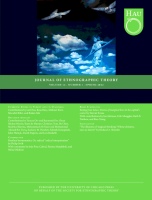
KONOPÁSEK, Z. (2022): Religion in action: How Marian apparitions may become true. HAU: Journal of Ethnographic Theory, 12 (1): 170–183
::::According to Latour, religion and science have nothing in common. The two are successful (or failing) in quite different ways. Religiousness is not aimed at fact-making, but at presence-making, he says. To critically reconsider these ideas, I discuss the case study of Marian apparitions in Litmanová. The study suggests a more complicated picture by not focusing on pure and ready-made religion, but rather on religion in the making, a kind of “almost-religion.” It shows how the reality of apparitions, initially of quite unclear status, was becoming more and more religious. Fact-making and fact-checking clearly belonged to this trajectory and have never stopped being relevant. Nonethless, together with how the apparition was progressively becoming truly religious (or religiously true), Latourian presence-making was gaining in importance.
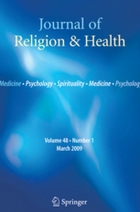
KONOPÁSEK, Z. / PALEČEK, J. (2012): Apparitions and possessions as boundary objects: An exploration into some tensions between mental health care and pastoral care. Journal of Religion and Health, 51 (3): 970-985
::::Apparitions and possessions can be taken as genuine spiritual events or as symptoms of psychopathology. We focus upon occasions when the two seemingly conflicting “interpretations” co-exist in order to explore these phenomena as a kind of boundary objects – polymorphous realities stable and graspable enough, yet belonging to different worlds at once. Related diagnostic knowledge is often uncertain and always incomplete. Yet it enables authoritative and effective professional interventions. We conclude by discussing the relevance of such a view for contemporary efforts to validate patients’ spiritual experiences within mental health care.
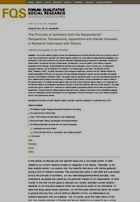
KONOPÁSEK, Z. / PALEČEK (2011): The principle of symmetry from the respondents’ perspective: Possessions, apparitions and mental illnesses in research interviews with clerics. Forum Qualitative Sozialforschung / Forum: Qualitative Social Research, 12 (1): čl. 12, http://nbn-resolving.de/urn:nbn:de:0114-fqs1101129
::::We study how experiences such as hearing the voice of the Lord or having a vision of Virgin Mary are dealt with in psychiatry and catholic pastoral practice. How the status of these phenomena is negotiated by the participants? Under what conditions they become an instance of legitimate religious experience or, alternatively, symptoms of mental illness? We approach the study of these issues “symmetrically” - we do not prefer a priori medical or spiritual explanations. Some time ago, we demonstrated and explained such an approach (which is common, e.g., in contemporary sociology of science), and its relevance for our research, in an analytic paper on the movie “The exorcism of Emily Rose” (2005). The paper discusses a highly ambiguous relationship, pictured in the film, between medical and spiritual interpretation of the story of a young girl who was considered possessed by demons and who died after unsuccessful exorcism (Konopásek & Paleček 2006). Now, the question is: can such a symmetrical approach be of any relevance also for people we are studying? In an attempt to give an answer, we have interviewed four catholic priests on this issue. The priests had been asked to watch the movie on Emily Rose and read our paper on it in preparation for the interview. Based on these discussions (and also on our current research in general), we would like to shed some light on whether and in what ways our specific epistemic perspective coheres with the views and positions of our respondents; and also, how this reflexive research experiment contributed to our own understanding of the role of the symmetry principle in our current research project.
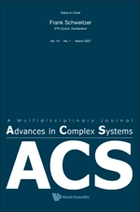
SLANINA, F. / KONOPÁSEK, Z. (2010): Eigenvector localization as a tool to study small communities in online social networks. Advances in Complex Systems, 13 (6): 699–723
::::We present and discuss a mathematical procedure for identification
of small "communities" or segments within large bipartite networks.
The procedure is based on spectral analysis of the matrix encoding
network structure. The principal tool here is localization of eigenvectors
of the matrix, by means of which the relevant network segments
become visible. We demonstrated our approach by analyzing the data
related to product reviewing on Amazon.com. We found several segments,
a kind of hybrid communities of densely interlinked reviewers
and products, which we were able to meaningfully interpret in terms of
the type and thematic categorization of reviewed items. The method
provides a complementary approach to other ways of community detection,
typically aiming at identification of large network modules.
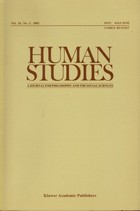
KONOPÁSEK, Z. / KUSÁ, Z. (2006): Political screenings as trials of strength: Making the communist power/lessness real. Human Studies, 29 (3): 341-362
::::In this paper we discuss the problem of communist power in so called totalitarian regimes. Inspired by strategies of explanation in contemporary science studies and by the ethnomethodological conception of social order, we suggest that the power of communists is not to be taken as an unproblematic source of explanation; rather, we take this power as something that is itself in need of being explained. We study personal narratives on political screenings that took place in Czechoslovakia in 1970 and analyze how the power of communists obtained its strength from ordinary and “unremarkable” interactions between participants. The screenings are interpreted, in the terms of Bruno Latour, as “trials of strength.” We show that it was crucial for all the participants that associations, translations or mobilizations involved in making the regime real, remained partial and multiple, and not exclusive and “total” as is often assumed within dominant discourses on totalitarianism.
KONOPÁSEK, Z. (1996): Sociologie jako power play. Sociológia, 28 (2): 99-125
::::The presented essay has been inspired by numerous writers who have one thing in common: they distrust of conceptual dualisms and incommen-surabilities that lie behind the modern social science thinking. That is why the dividing lines between knowledge and power, sociology and society, methods and ethnomethods, or truth and falsity are not approached here as part of the solution (as a resource of explanations) but as part of the problem (as things to be explained). It is argued that sociologists construct the authoritativeness of their knowledge in such a way that they arrange a power play, a plain superiority in numbers. They do so deftly and unnoticeably, yet unwittingly, under the guise of ascetic recluses distanced far away from ordinary life. The argument is illustrated by the case of "objective hermeneutic", a qualitative research strategy of German origin, used typically within so called biographical research. I claim that the case of objective hermeneutic (and the case of qualitative methodologies in general) is only particularly obvious and vivid demon-stration of what is much less obvious and visible elsewhere, throughout the field of social science.

 ? - recenze vyjde v časopise Biograf
? - recenze vyjde v časopise Biograf
 se objevily informace o tom, co lze snad prý během března čekat v nové, sedmé verzi mého oblíbeného analytického programu
se objevily informace o tom, co lze snad prý během března čekat v nové, sedmé verzi mého oblíbeného analytického programu





